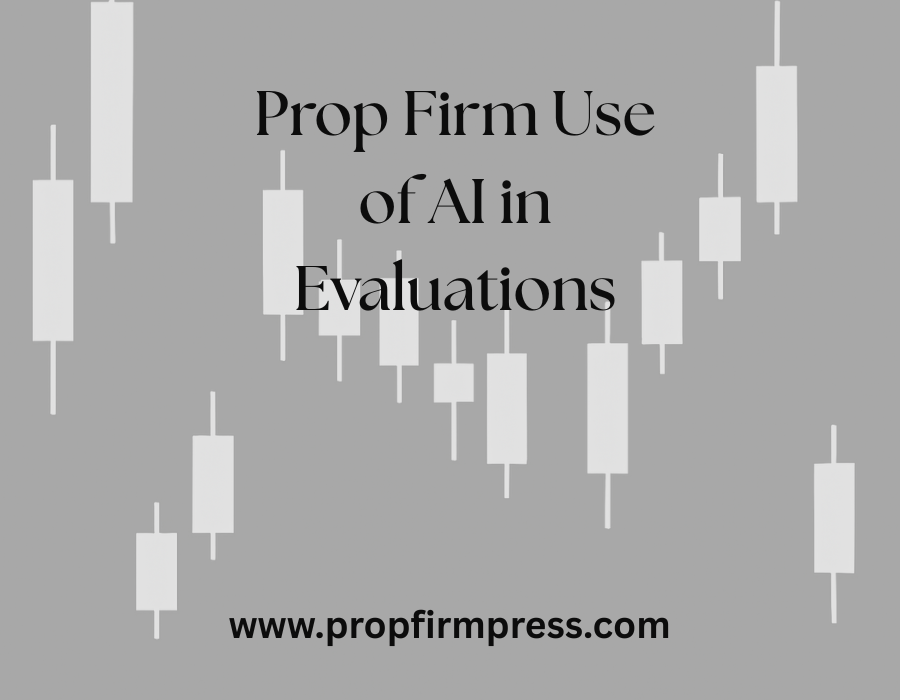Prop Firm Use of AI in Evaluations
The Rise of AI in Proprietary Trading Firms
Proprietary trading firms, commonly known as prop firms, have traditionally relied on human discretion and conventional quantitative metrics to assess trader performance. However, the rapid advances in artificial intelligence (AI) have ushered in a new era in the evaluation process. AI-driven analytics offer more precise, scalable, and dynamic assessments that push prop firms to optimize their risk management and enhance their talent acquisition strategy.
As competitive pressure intensifies, prop firms are leaning heavily on AI to process vast amounts of trading data in real time. This shift underscores the importance of leveraging technology not only for executing trades but also for monitoring and improving trader performance. By automating evaluations, firms can minimize biases and detect patterns that humans might overlook.
How AI Algorithms Enhance Trader Evaluation
AI systems analyze multiple facets of trading behavior, such as risk tolerance, decision timing, and consistency. Employing machine learning models, these systems can evaluate how traders react to different market conditions and identify behavioral anomalies or strengths that influence long-term success. This multidimensional insight surpasses standard metric evaluations like profit and loss (P&L) alone.
Moreover, AI-powered sentiment analysis gauges the psychological state of traders based on order flows and trade sizes. This allows prop firms to detect riskier trading under stress or fatigue, helping managers intervene before losses escalate. Adaptive algorithms continually learn from evolving market data, enabling ever-more refined assessments tailored to individual trader styles.
Integrating AI with Risk Management Protocols
Risk management lies at the heart of any prop firm’s success. AI’s role in this area is transformative. AI models can simulate a trader’s potential exposure under diverse stress scenarios, revealing vulnerabilities that traditional methods might miss. These insights allow firms to set more accurate risk limits and tailor capital allocation based on real-time performance indicators.
Furthermore, AI helps in monitoring compliance with pre-defined risk rules, automatically flagging violations with detailed context. Such automation reduces manual errors and accelerates response times. The real-time feedback loop also encourages traders to maintain discipline and align with the firm’s risk appetite more effectively.
AI-Driven Psychological and Behavioral Assessments
Beyond hard data, understanding trader psychology is vital for predicting long-term performance. Advanced AI tools incorporate natural language processing and facial recognition technologies during video interviews to analyze traders’ emotional states, confidence levels, and stress responses.
These AI assessments complement the trading data by providing a fuller picture of the trader’s mindset, resilience, and decision-making approach. Firms that integrate psychological insights into their evaluation process can identify candidates most likely to thrive in high-pressure trading environments.
Streamlining the Onboarding and Evaluation Process with AI
AI is instrumental in optimizing the onboarding process for new traders. Prop firms use AI simulations to design customized trial periods where prospective traders are challenged with varied market scenarios. AI evaluates their adaptability, execution speed, and risk management under these simulated conditions, allowing firms to efficiently filter out unsuitable candidates.
This approach reduces time and resource expenditure, enabling a larger pool of applicants to be assessed objectively. Additionally, AI’s continuous monitoring during live trading phases ensures ongoing evaluation without requiring constant manual oversight.
Challenges and Ethical Considerations in AI Evaluations
Despite its advantages, integrating AI in prop firm evaluations comes with challenges. Data privacy concerns must be addressed, especially when personal behavioral or biometric data are analyzed. Transparency regarding how AI models make decisions is critical to avoid opaque assessments that could undermine trader trust.
Additionally, firms must ensure that AI models do not perpetuate biases embedded in historical trading data. Regular audits and model updates are necessary to maintain fairness and reliability. Balancing AI-driven objectivity with human insight remains a delicate and ongoing endeavor.
The Future Outlook: AI and Human Synergy in Prop Trading
The future of prop firm evaluations lies in a hybrid approach, merging AI’s analytical power with human judgment. While AI excels at processing complex datasets and pinpointing subtle trends, experienced traders and managers contribute contextual understanding and intuition that algorithms currently cannot replicate.
As AI continues to evolve, tools will become more sophisticated, enabling personalized coaching and adaptive learning for traders. Prop firms that successfully implement this synergy will gain a competitive edge by cultivating high-performing talent and managing risks proactively.
Ultimately, AI-driven evaluation technologies signify a paradigm shift in prop trading, fostering smarter trades, better risk control, and improved trader development in an increasingly fast-moving financial landscape.
Ready to sharpen your strategy? Gain instant access to Scalping VIP today.
